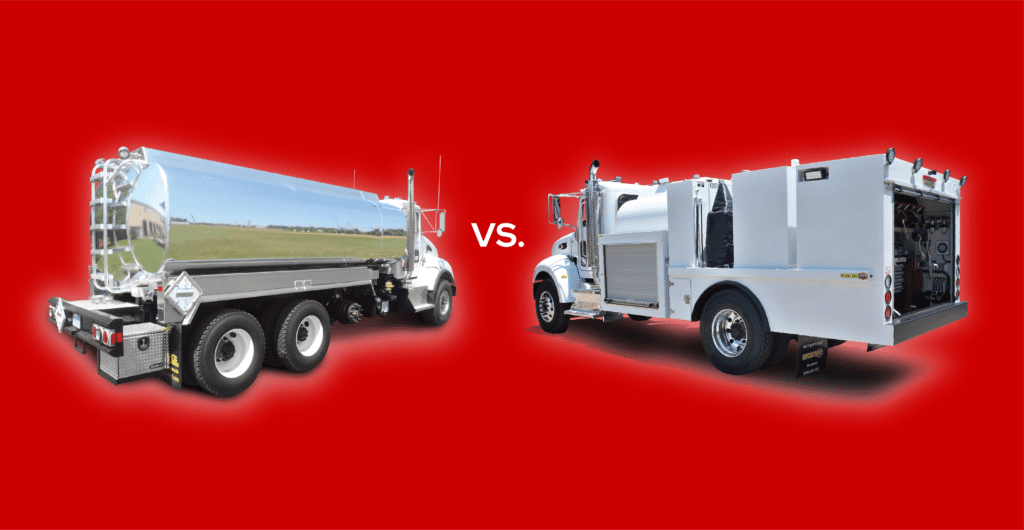Oil Truck or Lube Truck? TPL Explains The Differences
Outside of our industry (and sometimes, within it), people will mistakenly refer to a lube truck as an “oil truck”. While the distinction may seem negligible, it’s important to recognize the differences in these two pieces of equipment, especially when discussing business needs.
Oil Trucks
An oil truck is normally used to deliver bulk oil for stationary tanks and use. Some uses are, but are not limited to:
- Home heating oil
- Local boat and auto dealerships, marinas and manufacturing plants
Since the oil is being sold directly by volume, oil weights and measurement factors will always be part of the setup. Metering devices with associated gauges help track the amount of oil delivered. (A good example of a metering device is a gas pump at a local filling station.) Metering devices and gauges also need to be routinely calibrated to ensure accuracy and efficiency. Finally, most oil trucks are usually owned by the oil distributor.
Lube Trucks
With a completely different mission, a lube truck is typically used to change oil and fluids in heavy equipment, fleet applications and off road vehicles (i.e. mowing tractors that cut grass on the highway). In addition, lube trucks can also be used to fuel and grease the same equipment. Most of the time these trucks are owned by the customer who is servicing his equipment. Unlike an oil truck, there is no type of commerce activity occurring on a lube truck, such as the selling of fluids Lube trucks also come in a variety of sizes, configurations, and have tool storage options.
Need a larger fuel tank to accommodate longer days on the job site? Looking for a specific product layout that other companies just don’t seem to offer?

